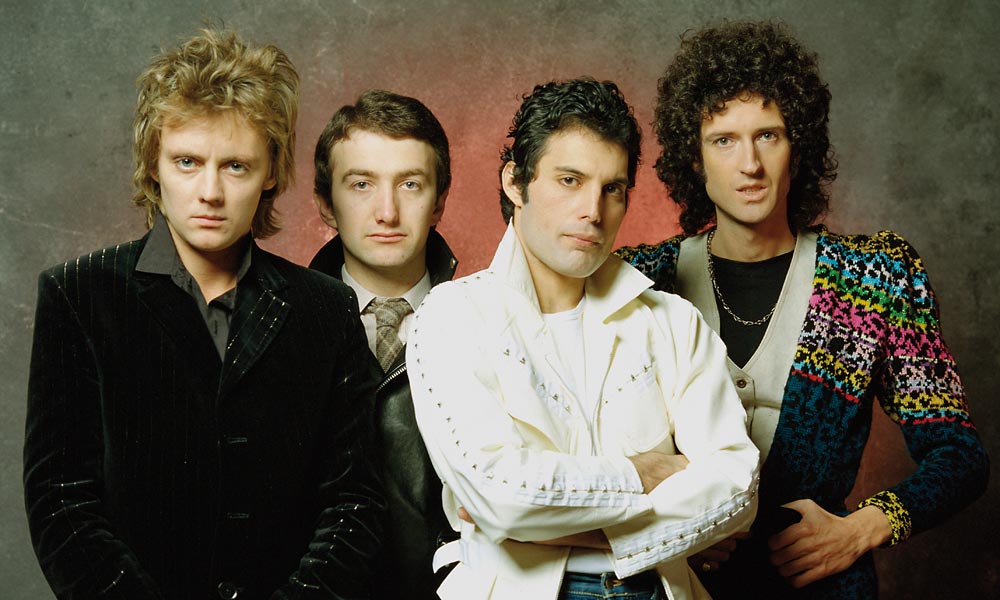Queen is one of the most iconic and influential rock bands in the history of music. Formed in London in 1970, the band consisted of Freddie Mercury (lead vocals, piano), Brian May (guitar, vocals), Roger Taylor (drums, vocals), and John Deacon (bass guitar). Their unique sound, which blended rock, opera, progressive, and pop elements, set them apart from their contemporaries and allowed them to carve out a legacy that continues to thrive to this day.
Early Years and Formation
Queen’s roots can be traced back to the late 1960s when Brian May and Roger Taylor played together in a band called Smile. After their lead singer, Tim Staffell, left the group, Freddie Mercury, a fan of Smile and an aspiring musician himself, joined them and proposed a new musical direction. With the addition of John Deacon on bass in 1971, Queen as we know it was formed.
The band spent their early years refining their sound and style, blending rock with theatrical and operatic elements that would later become their signature. In 1973, they signed with EMI Records and released their self-titled debut album, Queen, which showcased their raw talent and potential. Though not an immediate commercial success, the album featured tracks like “Keep Yourself Alive,” which hinted at their future greatness.
Rise to Fame
Queen’s second album, Queen II (1974), marked a turning point for the band. With songs like “Seven Seas of Rhye,” the album showcased their growing confidence and artistic ambition. However, it was their third album, Sheer Heart Attack (1974), that truly propelled them into the spotlight. The album featured the hit “Killer Queen,” which became their first major international success.
The band’s fourth album, A Night at the Opera (1975), cemented their place in rock history. It featured “Bohemian Rhapsody,” one of the most groundbreaking and innovative songs of all time. The track’s operatic sections, elaborate harmonies, and seamless genre-blending made it a masterpiece. The song’s success was bolstered by its music video, which became a defining moment in the development of the music video era. The album also included other classics like “You’re My Best Friend” and “Love of My Life.”
Continued Success and Experimentation
Following A Night at the Opera, Queen continued to push musical boundaries. A Day at the Races (1976) served as a sequel of sorts, featuring tracks like “Somebody to Love,” which highlighted Freddie Mercury’s gospel-influenced vocal prowess. The late 1970s saw Queen experimenting with different musical styles. News of the World (1977) produced stadium anthems “We Will Rock You” and “We Are the Champions,” both of which became sports and cultural anthems worldwide.
In 1978, the band released Jazz, an eclectic album featuring “Bicycle Race” and “Don’t Stop Me Now,” the latter of which became one of their most enduring hits. Queen’s ability to adapt to changing musical trends while maintaining their unique identity set them apart from their peers.
The 1980s and Global Dominance
The 1980s saw Queen reaching even greater heights. Their 1980 album The Game was notable for incorporating funk and disco influences, most evident in “Another One Bites the Dust,” a massive hit that expanded their fanbase. The album also featured “Crazy Little Thing Called Love,” a rockabilly-inspired track that showcased Mercury’s versatility.
Queen’s involvement in the 1980 film Flash Gordon resulted in a cult-favorite soundtrack. However, it was their 1981 collaboration with David Bowie on “Under Pressure” that reaffirmed their status as musical innovators. The song’s unforgettable bassline and powerful vocals made it a classic.
By 1984, Queen embraced synthesizers and electronic elements in The Works, featuring hits like “Radio Ga Ga” and “I Want to Break Free.” However, one of their most defining moments came in 1985 during Live Aid. Their 20-minute set at Wembley Stadium is often regarded as one of the greatest live performances in rock history. With Mercury’s unmatched stage presence and the band’s tight musicianship, their performance captivated millions worldwide.
Tragedy and Final Years
In 1986, Queen released A Kind of Magic, which included songs used in the film Highlander. That same year, they embarked on the Magic Tour, which would be their last with Freddie Mercury. As Mercury’s health declined due to complications from AIDS, the band continued to record music in secrecy.
Their 1991 album, Innuendo, was a poignant farewell. Songs like “The Show Must Go On” reflected Mercury’s determination and resilience despite his illness. On November 24, 1991, Freddie Mercury passed away, leaving behind a legacy of groundbreaking music and an indelible mark on rock history.
Legacy and Influence
Following Mercury’s death, Queen’s legacy continued to grow. In 1992, the band’s music experienced a resurgence due to the film Wayne’s World, which introduced “Bohemian Rhapsody” to a new generation. The surviving members continued to collaborate on various projects, including the musical We Will Rock You and performances with artists like Adam Lambert.
Queen’s influence can be heard in countless artists across genres. Their theatricality, boundary-pushing music, and fearless experimentation have inspired generations of musicians. Their songs continue to be celebrated, and their impact on rock and popular culture remains unparalleled.
Conclusion
Queen’s ability to blend rock, opera, pop, and theatrical elements created a sound that was entirely their own. From their groundbreaking studio recordings to their legendary live performances, they redefined what a rock band could be. With Freddie Mercury’s electrifying stage presence, Brian May’s virtuosic guitar work, Roger Taylor’s dynamic drumming, and John Deacon’s memorable bass lines, Queen remains one of the most beloved and enduring bands of all time.



